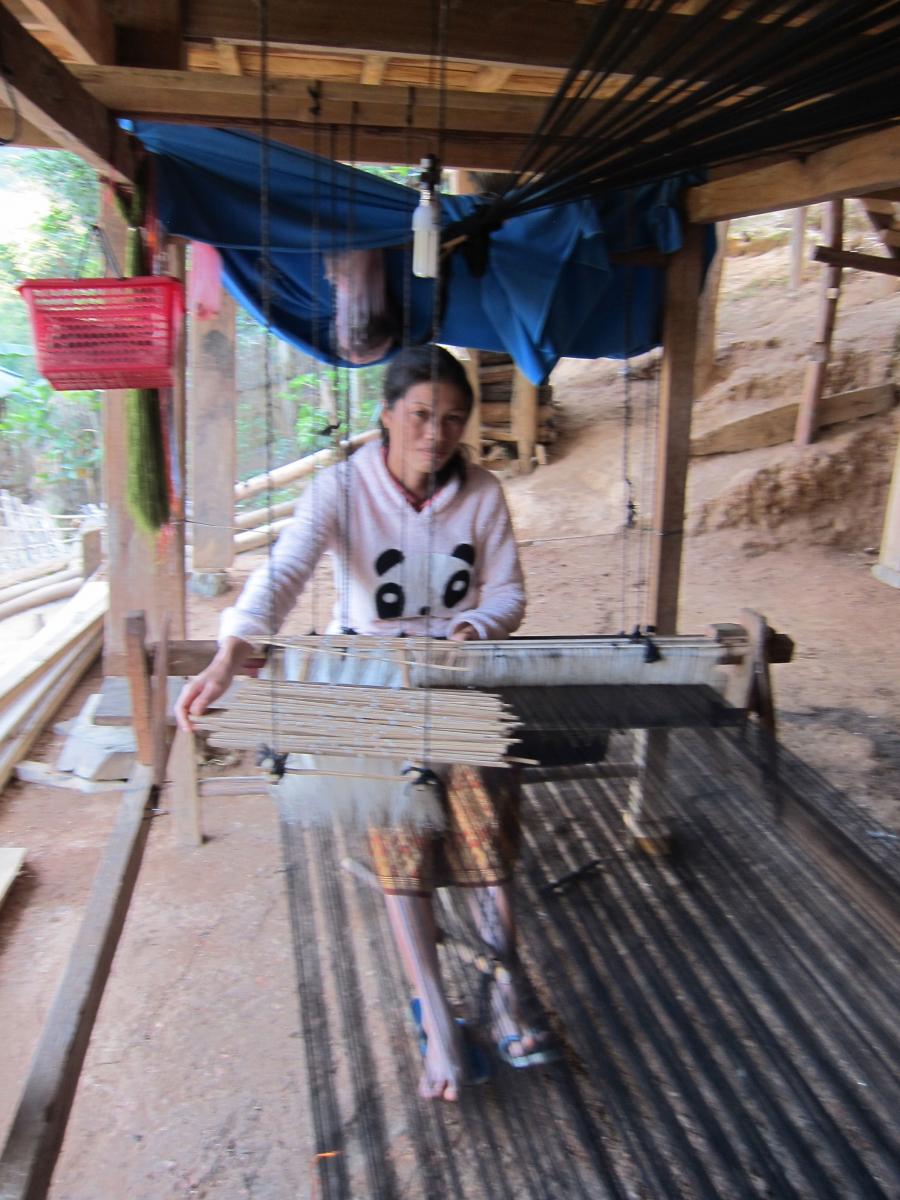Mrs. Keo lives in Vangsong village with her husband and their four children. She works hard each day, taking care of the young children and weaving skirts on a traditional homemade loom to earn some income for the family’s needs. Her husband works in the upland fields planting and harvesting rice for daily food consumption.
We were visiting the village and learning from villagers about the impact of the development activities that World Renew engaged in together with the community. One of those activities involved helping to set up a revolving loan fund for the women’s group in the village. This situation was unique for World Renew because in the other communities where World Renew works, the loan fund is not set up specifically for the women’s group and thus the majority of loan recipients are men. In Vangsong, the loan fund is managed and used only by women. Mrs. Keo was very enthusiastic as she explained how the women and their families are benefiting from the loan fund.
Most of the women in the village already have the skills to weave skirts using looms. These skills are passed on to them by their mothers and aunts, and Mrs. Keo is currently passing along her skills to her 12-year-old daughter.
The challenge they often face, however, is in having sufficient funds to purchase the raw materials needed to weave a product that can be sold for a reasonable profit. In the past, they had limited cash flow because they could afford to purchase only cheap, low-quality material and thus produce low-cost skirts for the market. They often worked hard for just a minimal income. Through the loan fund they are now able to purchase higher-quality material and produce skirts that have a higher profit margin. For example, in the past they produced traditional Lao skirts, each one taking an average of two days to make, that sold for 60,000 kip (approx. $7.50 USD) each. But now, by spending a little extra on higher-quality materials, they can produce skirts that sell for 140,000 kip (approx. $17.50 USD) each. So now the women have more income to use for a variety of family needs. Mrs. Keo explained that she hopes to save up some money to make additional improvements to their house.
The women in the village manage the revolving fund themselves. They have elected three representatives to be responsible; a chair, a treasurer, and a bookkeeper. The amount that can be loaned ranges between 250,000 kip (approx. $30 USD) and 500,000 kip (approx. $60 USD). Mrs. Keo proudly showed us the record-keeping book for which she, as bookkeeper, is responsible. The list of all who received a loan and then repaid the amount (plus 5 percent interest) six months later was carefully recorded, along with those who received a second loan after 100 percent repayment.
The women are looking forward to the future as the fund grows and continues to bring benefits for their families.
Blessings,
Mike Fennema
Program Consultant
World Renew Laos

